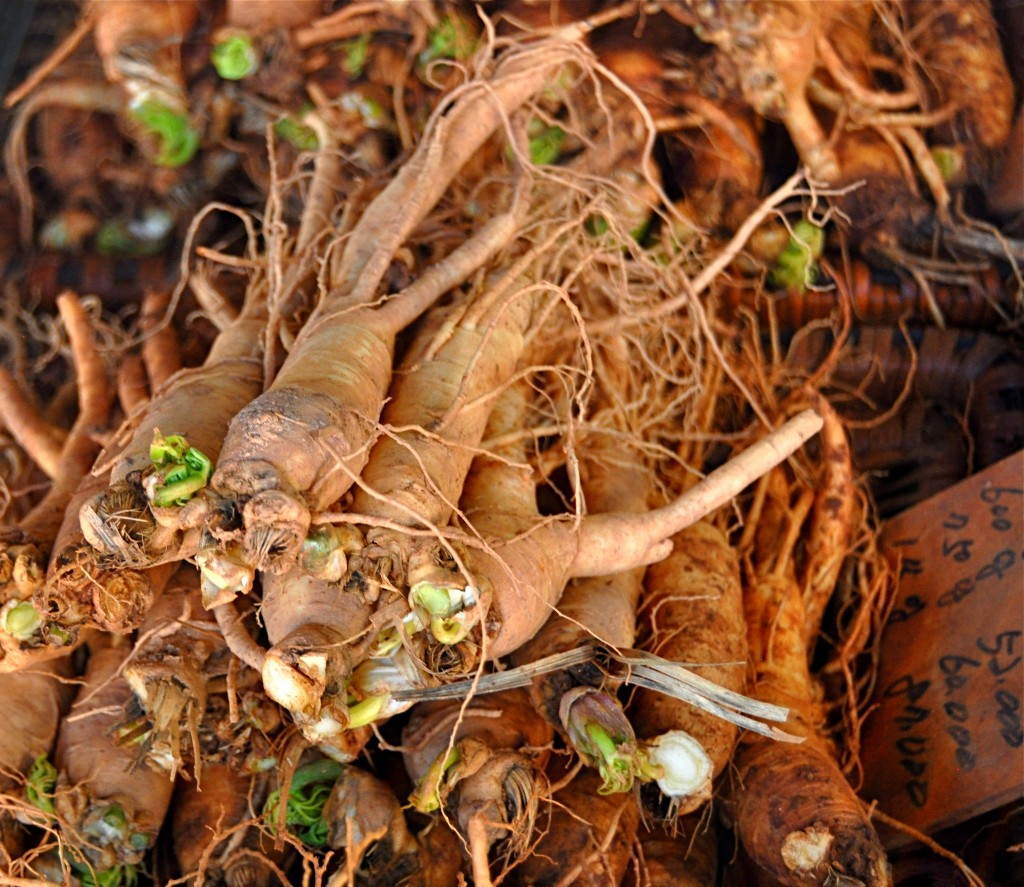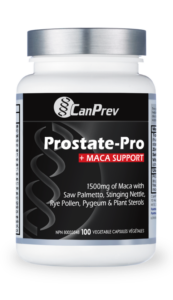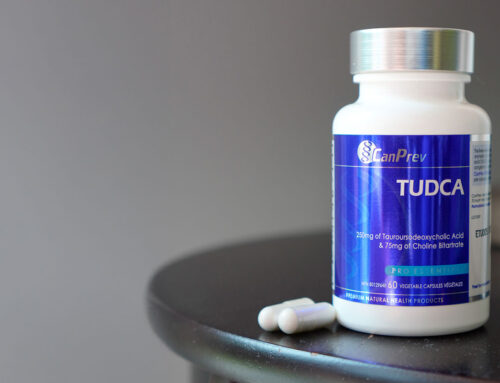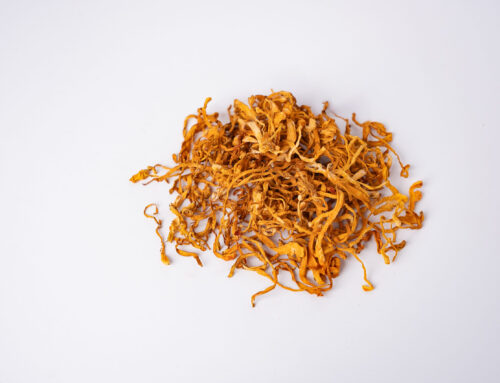There are a few different types of ginseng available that can be found at your local health and nutrition store. But do you know the difference between each of them? Here is a quick guide to help you choose the best ginseng for you.
Asian ginseng (Panax ginseng)
Asian ginseng, also known as Korean ginseng, is considered a true ginseng because it contains ginsenosides which are the active constituents of this root. Asian ginseng has a warming, heat producing or stimulating effect. It is more suitable for the elderly and short term (3 months). This effects of this root is known to increase physical endurance and reduce fatigue and to improve the ability to cope with stress.
American ginseng (Panax quinquefolius)
American ginseng is also considered a true ginseng due to its ginsenoside content, but with a different chemical makeup from Asian ginseng. American ginseng is considered cooler in nature and less stimulating than Asian ginseng. Its use is suitable for young and middle aged people and can be used long term. American ginseng is known to help boost the immune system and balance blood sugar levels.
Siberian ginseng (Eleutherococcus senticosus)
Siberian ginseng, despite its name, is actually not a ginseng as it does not contain ginsenosides. It is instead rich in eleutherosides, the active constituent that provides the adaptogenic effects of this herb. Siberian ginseng can be used long term to help increase energy and the body’s resistance to stress, and is commonly used to alleviate general fatigue, and improve mental and physical performance during periods of stress.
Indian Ginseng (Withania somnifera)
Indian ginseng, also known as Ashwagandha, is also another medicinal herb not related to the ginseng family despite its popular name. This herb is frequently referred to as Indian ginseng because of its rejuvenating properties even though botanically ginseng and Ashwagandha are unrelated. Much of Ashwagandha’s pharmacological activity is from the withanolide content in this herb. It can be used long term and is known to have a more gentle and less stimulating effect compared to American ginseng. In Ayurvedic medicine, this herb helps increase one’s resistance to stress and is traditionally used as a rejuvenative tonic and and to relieve general debility, especially during convalascence or old age.










Appreciating the commitment you put into your blog and detailed information you provide. It’s nice to come across a blog every once in a while that isn’t the same old rehashed material.
I’m interested the Panax Ginseng is recommended for persons past middle age but not necessarily for long term use. What if a person is over 60 and is seeking long term use? which variety is recommended in that scenario?
Hi there, thank you for your question. Indian ginseng (Ashwagandha) is a wonderful tonic and adaptogen and is suitable for long term use. Traditionally it has been used in Ayurvedic medicine to improve general health and sleep in elderly people. We recommend you speak with your healthcare practitioner prior to starting any new herbal regime to ensure there are no existing medical conditions or medication conflicts. Hope this helps!